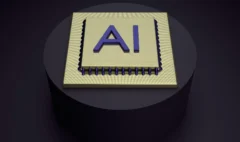AI Ethics: What You Need to Know
AI Ethics: What You Need to Know
Artificial Intelligence (AI) has become an integral part of our lives, revolutionizing various industries and transforming the way we live and work. However, as AI continues to advance, it is crucial to address the ethical implications associated with its use. In this blog post, we will explore the key aspects of AI ethics and discuss how to ensure responsible AI deployment.
Understanding AI Ethics
AI ethics refers to the moral and ethical considerations surrounding the development, deployment, and use of artificial intelligence technologies. It involves examining the potential impact of AI on society, individuals, privacy, bias, accountability, and more. As AI becomes more powerful and pervasive, it is essential to establish ethical guidelines to prevent any unintended consequences.
The Importance of Responsible AI
Responsible AI is the practice of developing and using AI systems in a way that is fair, transparent, and accountable. It involves ensuring that AI algorithms and models are unbiased, privacy is protected, and human values are respected. Responsible AI helps to build trust in AI technologies and ensures that they are used for the benefit of society as a whole.
Key Ethical Considerations in AI
1. Bias and Fairness: AI systems are trained on vast amounts of data, which can introduce biases if the data is not representative. It is crucial to address and mitigate biases to ensure fairness and prevent discrimination in AI decision-making processes.
2. Privacy and Security: AI often relies on collecting and analyzing large amounts of personal data. It is essential to prioritize privacy and implement robust security measures to protect individuals’ sensitive information from unauthorized access or misuse.
3. Transparency and Explainability: AI algorithms can be complex and difficult to interpret. It is important to make AI systems transparent and explainable, enabling users to understand the reasoning behind AI-generated decisions and ensuring accountability.
4. Accountability and Oversight: Organizations deploying AI systems must take responsibility for the outcomes and impacts of their AI technologies. Establishing clear lines of accountability and implementing oversight mechanisms can help prevent potential harm and ensure ethical use of AI.
Ensuring Ethical AI Deployment
1. Ethical Frameworks: Organizations should adopt and adhere to ethical frameworks and guidelines when developing and deploying AI systems. These frameworks can provide a set of principles and best practices to ensure responsible AI use.
2. Data Quality and Diversity: Ensuring high-quality and diverse training data is essential to prevent biases in AI systems. Organizations should carefully curate and validate data to minimize the risk of perpetuating unfair or discriminatory outcomes.
3. Continuous Monitoring and Evaluation: Regularly monitoring and evaluating AI systems’ performance and impact can help identify and address any ethical concerns that may arise. This includes ongoing assessment of biases, privacy risks, and unintended consequences.
4. Collaboration and Engagement: Collaboration among stakeholders, including researchers, policymakers, industry experts, and the public, is crucial in shaping AI ethics. Engaging in open discussions and involving diverse perspectives can lead to better decision-making and ensure that AI benefits society as a whole.
Preparing for the AI Revolution
As AI continues to advance, it is essential for individuals to stay informed and prepared for the changes it brings. Skillzonia.com offers courses that can help you develop the skills and knowledge needed to thrive in the AI revolution. Whether you are interested in AI ethics, machine learning, or AI applications in specific industries, Skillzonia.com has a wide range of courses to cater to your needs.
In conclusion, AI ethics play a vital role in ensuring the responsible development and deployment of artificial intelligence technologies. By addressing key ethical considerations and implementing best practices, we can harness the power of AI while safeguarding against potential risks. Let us embrace the AI revolution with a commitment to ethical AI and continuous learning.
Take a course on skillzonia.com to get yourself prepared for the AI Revolution.









